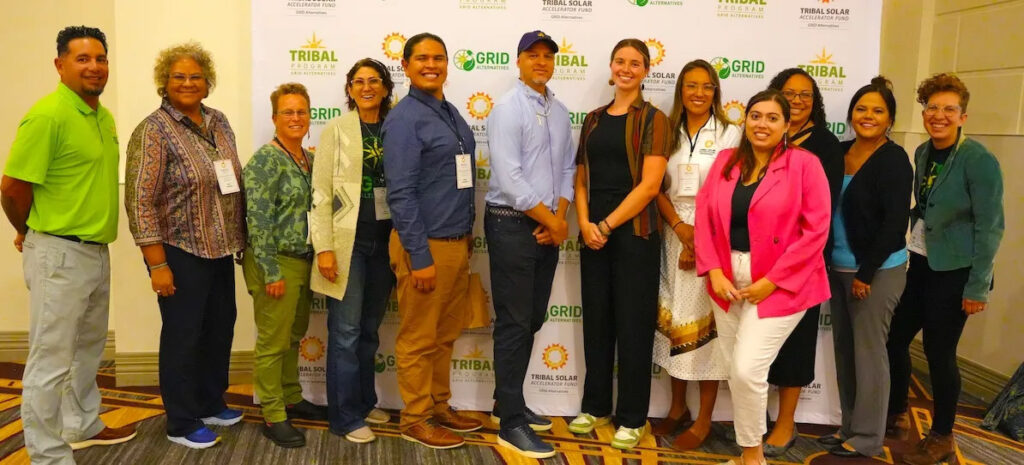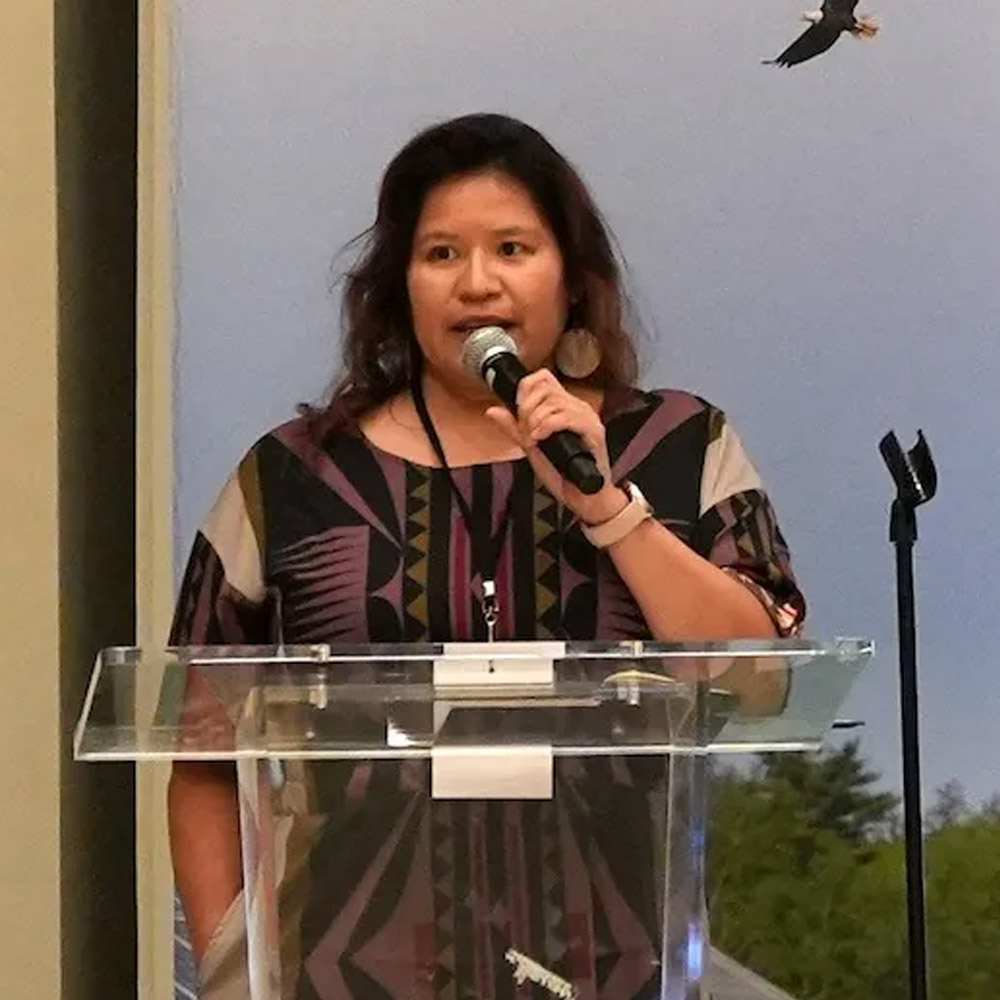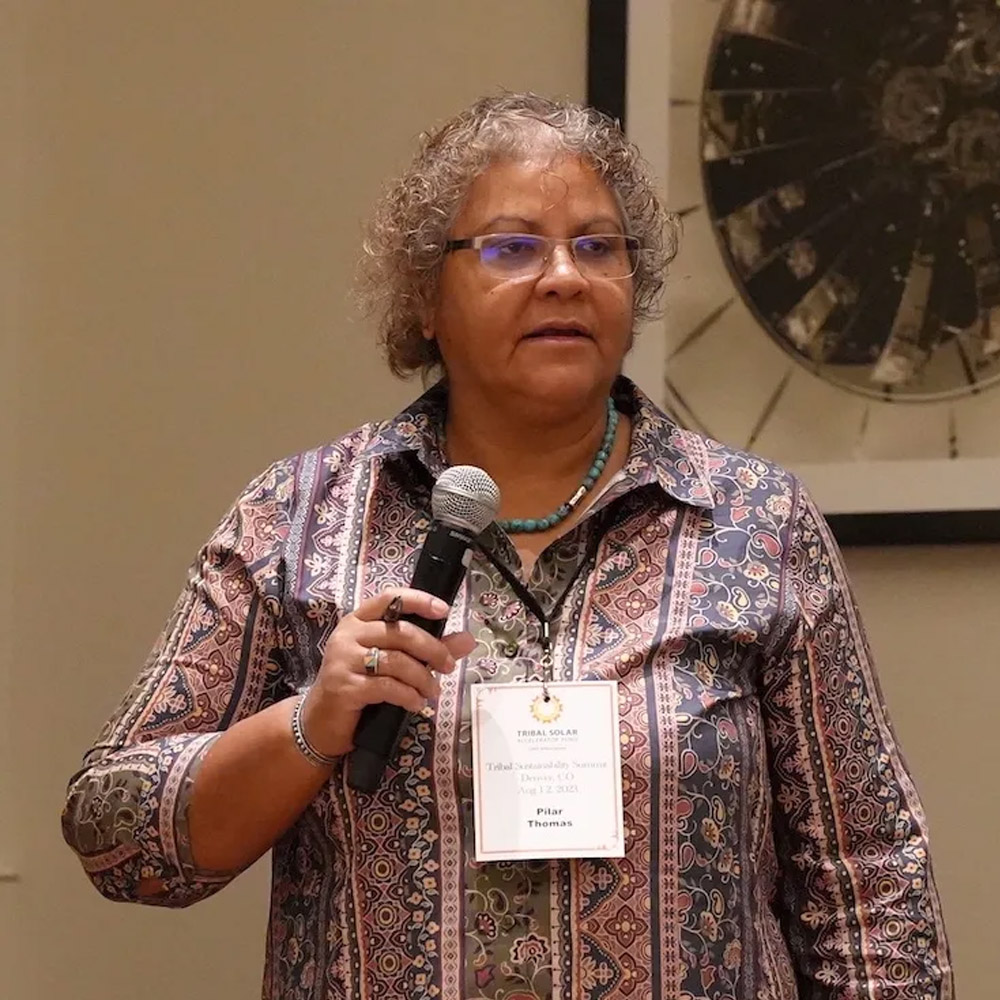-
Visit Us:

(Members from GRID Alternatives pose for a group photo at the 2023 Tribal Sustainability Summit in Denver, CO)
In a significant step towards tribal sovereignty and sustainability, the Tribal Solar Accelerator Fund recently hosted the much-anticipated Tribal Sustainability Summit in Denver, Colorado. This summit served as a platform for tribal grantees, leadership program awardees and tribal leaders along with GRID Alternatives staff members to come together, exchange ideas, and gain valuable industry insight for sustainable development. With a focus on renewable energy, the summit aimed to serve as an end of year review for all attendees with an emphasis on tribal traditions and values.
The event included attendees from all across Indian country who are passionate about environmental conservation and the empowerment of Indigenous communities. One of the highlights of the summit was the presence of two keynote speakers who have made significant contributions to the field of sustainability and renewable energy for tribes.
Suzanne Singer, co-founder of Native Renewables, graced the summit as the day 1 keynote speaker. Singer has become a prominent figure in the renewable energy sector, specifically advocating for the adoption of solar energy in tribal communities. Her organization, Native Renewables, focuses on bringing affordable and accessible solar energy solutions to indigenous households. During her keynote address, Singer shared her journey of bridging the gap between sustainable technology and traditional indigenous values. Her efforts have not only provided energy access to underserved communities but also empowered them to take control of their energy production and reduce their carbon footprint.

(Suzanne Singer, co-founder of Native Renewables)
Pilar Thomas, a renowned attorney and advocate for tribal sovereignty and environmental justice, served as the keynote speaker for day 2. With an extensive background in tribal and federal law, Thomas has been a strong voice for the rights of Indigenous peoples in matters related to natural resource management and sustainable development. Her insights during the summit revolved around the importance of legal frameworks that support tribal self-governance and stewardship of natural resources. Thomas emphasized the need for collaborative efforts between government agencies, non-governmental organizations, and tribal communities with a particular emphasis on the importance of advocacy and tribal/federal policy.

(Pilar Thomas, Attorney)
Summit Highlights:
The summit showcased a variety of discussions, workshops, and panels that covered topics ranging from renewable energy technologies and sustainable agriculture to cultural preservation and communications. Participants had the opportunity to learn about successful sustainability projects undertaken by various tribal communities, sparking inspiration and fostering a sense of unity.
One key aspect of the summit was the emphasis on preserving indigenous knowledge and cultural heritage while pursuing sustainable development. Participants recognized that the unique perspective of indigenous communities can contribute valuable insights to global sustainability efforts.
Moving Forward:
The Tribal Sustainability Summit was not just a one-time event but rather a starting point for ongoing collaborations and initiatives. Attendees left the summit with a renewed sense of purpose and a commitment to implementing the lessons and ideas shared during the event. The discussions and connections made are expected to pave the way for more partnerships, research endeavors, and community-driven projects that will contribute to a greener and more sustainable world for generations to come.
As the summit came to a close, the organizers expressed their gratitude to all participants, sponsors, and speakers for their dedication to the cause of tribal sustainability. With the momentum generated by the summit, it is clear that the path toward a more sustainable future is not just within reach, but firmly within the grasp of those who are willing to work together and make a difference.
Written by John Teller – TSAF/Tribal Communications Officer
